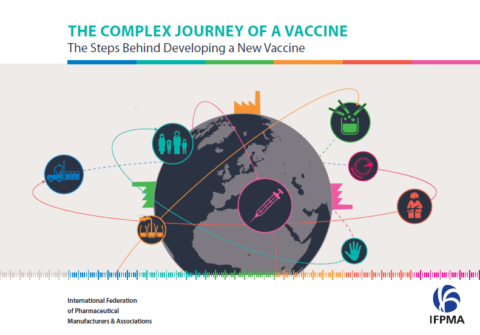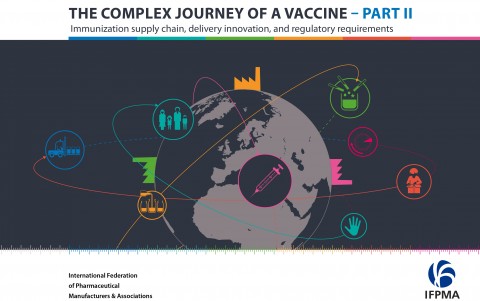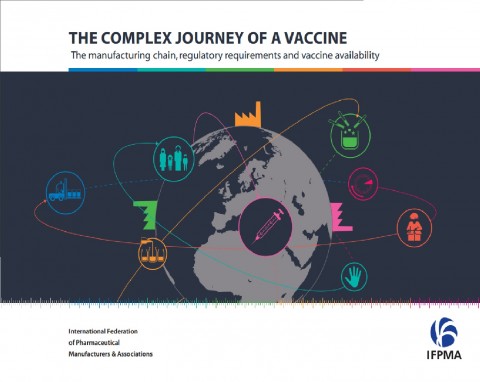GENEVA, 2 September 2019 – Today, the International Federation of Pharmaceutical Manufacturers and Associations (IFPMA) launched a new report titled ‘Complex Journey of a Vaccine: The Steps behind Developing a New Vaccine’.
The report highlights three major factors that contribute to the lengthy development process of a novel vaccine, and highlights the challenges that manufacturers face when submitting Clinical Trial Applications (CTA):
- Absence of clear regulations or guidance available that describe the requirements for clinical trials and genetically modified organisms ahead of submission. There is often no possibility to discuss with the regulatory authorities beforehand for a better mutual understanding of the process / product. This implies unnecessary waiting periods to respond to queries which could have been handled in the initial application phase, resulting in a waste of resources – both on the manufacturer and regulatory authority side.
- Lack of a global standard with regards to both the dossier content and its format, with some countries introducing country-specific and unique requirements. In some instances, CTA applications are in a harmonized format, while in other instances country specific formats are applicable. Some countries and regions require electronic submissions, whereas others request paper submissions. This can lead to many different dossiers for a single study, adding to the complexity to run multinational clinical trials.
- Unpredictability of review timelines by countries: clinical trial approvals can take from 30 days to several months or even years.
The existence of divergent regulatory requirements across the world significantly slows down the manufacturers’ ability to timely deliver products which have the potential to protect people from devastating infectious diseases where no other prevention or treatment options exist. As vaccines are typically targeting healthy people, it is paramount to rigorously test the safety, efficacy and quality of vaccines. To speed up, there is a need to inject a dose of efficiency and predictability in the regulatory processes.
It is estimated that inefficient CTA and (non-harmonized) GMO processes can negatively impact the possibility to license new products by more than three years
The Complex Journey of a Vaccine report provides 8 key recommendations on what can be done to speed up innovative vaccine development. Convergence towards common global standards for CTA requirements, reliance and ultimately, mutual recognition of CTA approvals, will result in enabling a robust and timely development of much needed vaccines.









